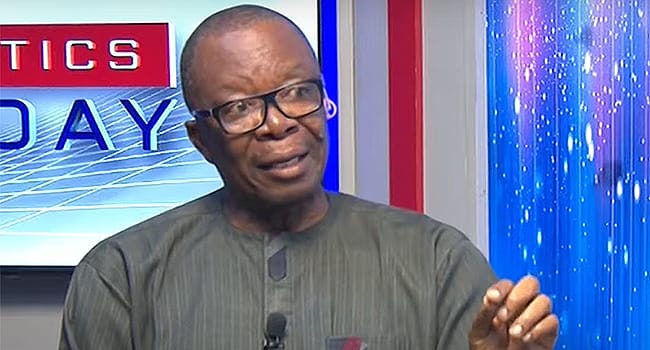Professor Emmanuel Osodeke, President of the Academic Staff Union of Universities (ASUU), has voiced significant concerns over the growing trend of first-class degrees being awarded by private universities in Nigeria.
Speaking at a recent event in honour of Professor Andy Egwunyenga, the outgoing Vice-Chancellor of Delta State University (DELSU), Osodeke highlighted the implications of this development for the integrity of Nigeria’s higher education system.
The ceremony, which marked the conclusion of Professor Egwunyenga’s tenure at DELSU, was held on the university’s campus in Abraka, located in Ethiope East Local Government Area, Delta State.
In his address, Osodeke noted that while many primary and secondary schools in the country now produce students with impressive grades, their actual knowledge and understanding remain inadequate.
He warned that if public universities were to adopt similar practices without strict regulation, it could undermine the value of academic qualifications and erode genuine intellectual pursuits.
“Without careful oversight, we risk compromising the credibility of academic achievements in Nigeria. This could diminish the value of scholarly work and undermine the efforts of true scholars,” Osodeke remarked.
The ASUU president also addressed the concerning trend of skilled professionals leaving Nigeria in search of better opportunities abroad. He linked this exodus to the country’s structural failures and the declining standards in its educational institutions.
Osodeke lamented that despite past successes in the struggle for improved living conditions for academics, the current situation calls for renewed efforts to address the challenges facing the education sector.
“The fight for a decent standard of living for academics once yielded tangible results, but the present reality demands that we redouble our efforts to restore these standards. ASUU will continue to advocate for fairness and justice within the academic community,” he stated.
Professor Omotoye Olorode, another prominent academic, also took the opportunity to criticise Nigeria’s persistently low budgetary allocation to education. Despite international recommendations, the country’s allocation has never exceeded seven per cent of the national budget, far below UNESCO’s suggested 26 per cent threshold. Olorode described this as a reflection of stagnation in the nation’s educational development.
The event also celebrated the legacy of Professor Andy Egwunyenga, who, during his tenure as Vice-Chancellor of DELSU, was credited with guiding the university through challenging periods. Dr. Paul Opone, ASUU’s DELSU Chairman, lauded Egwunyenga for his leadership and his widespread respect within the academic community.
“This is the first time ASUU has honoured a DELSU lecturer in this way. Professor Egwunyenga has far exceeded expectations, leaving behind a legacy that will be remembered for years to come,” Opone said.
In response, Professor Egwunyenga expressed his gratitude for the recognition and shared that his approach to leadership had been shaped by the themes explored in Festus Iyayi’s novel Demons and Monsters, which inspired him throughout his tenure.
The event not only marked the end of Egwunyenga’s leadership at DELSU but also sparked vital discussions on the future of Nigeria’s educational system, raising pertinent issues about the quality of degrees, the emigration of skilled professionals, and the persistent underfunding of education in the country.



